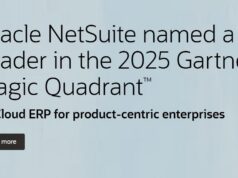E‑commerce has evolved from a convenience into a necessity. By 2026, nearly every business—whether a small boutique or a global enterprise—has embraced digital commerce. Artificial intelligence, automation, and omni‑channel strategies are no longer optional; they are the backbone of modern retail. Choosing the right platform is critical, as it determines scalability, customer experience, and profitability.
Below, we explore the 10 best e‑commerce platforms in 2026, analyzing their strengths, weaknesses, and suitability for different business models
1. Shopify
Overview: Shopify remains the global leader in e‑commerce, powering millions of stores worldwide.
Strengths:
AI‑driven personalization for product recommendations.
Seamless integration with social commerce (TikTok, Instagram, YouTube).
Advanced fulfillment through Shopify Logistics.
Best For: Small to medium businesses seeking ease of use and scalability.
2026 Update: Shopify’s “Shopify AI Suite” automates marketing, inventory, and customer service, making it a one‑stop solution.
2. BigCommerce
Overview: Known for flexibility and enterprise‑grade features.
Strengths:
Headless commerce architecture for custom front‑ends.
Strong B2B capabilities with bulk pricing and quote management.
Multi‑channel selling across Amazon, eBay, and Walmart.
Best For: Mid‑size to large businesses needing customization.
2026 Update: BigCommerce now offers AI‑powered fraud detection and predictive analytics for demand forecasting.
3. WooCommerce
Overview: The WordPress plugin that transformed blogs into stores.
Strengths:
Open‑source flexibility.
Massive ecosystem of plugins and themes.
Cost‑effective for startups.
Best For: Businesses already using WordPress.
2026 Update: WooCommerce integrates with Web3 wallets, enabling crypto payments and NFT product sales.
4. Magento (Adobe Commerce)
Overview: A powerhouse for enterprise e‑commerce.
Strengths:
Highly customizable with robust APIs.
Advanced inventory and order management.
AI‑driven personalization through Adobe Sensei.
Best For: Large enterprises with complex catalogs.
2026 Update: Adobe Commerce now supports AR “try‑before‑you‑buy” features and real‑time personalization at scale.
5. Wix eCommerce
Overview: A website builder turned full e‑commerce solution.
Strengths:
Drag‑and‑drop simplicity.
Affordable pricing.
Integrated marketing tools.
Best For: Small businesses and creatives.
2026 Update: Wix AI Designer builds entire storefronts automatically based on brand guidelines.
6. Squarespace Commerce
Overview: Popular among creatives and service‑based businesses.
Strengths:
Elegant templates.
Strong integration with booking and subscriptions.
Easy digital product sales.
Best For: Artists, photographers, and service providers.
2026 Update: Squarespace now offers AI‑powered design suggestions and integrated video commerce.
7. Salesforce Commerce Cloud
Overview: Enterprise‑grade platform with CRM integration.
Strengths:
Unified customer data across sales, service, and marketing.
AI‑driven personalization via Einstein AI.
Global scalability.
Best For: Large corporations needing omni‑channel commerce.
2026 Update: Salesforce integrates conversational AI shopping assistants across web and mobile.
8. Oracle NetSuite Commerce
Overview: ERP‑driven commerce solution.
Strengths:
Deep financial and supply chain integration.
Strong B2B commerce features.
Cloud‑native scalability.
Best For: Enterprises needing unified ERP + commerce.
2026 Update: NetSuite now offers AI‑driven supply chain optimization and predictive financial modeling.
9. TopDawg
Overview: A rising star in dropshipping and wholesale.
Strengths:
Automated product sourcing.
Domestic supplier focus (reducing tariffs and shipping delays).
Integrated fulfillment.
Best For: Retailers seeking dropshipping solutions.
2026 Update: TopDawg’s AI engine automates catalog curation and pricing optimization.
10. Custom Headless Solutions
Overview: Many businesses now build custom headless commerce platforms.
Strengths:
Total flexibility.
Ability to integrate with AR/VR, IoT, and Web3.
Tailored to unique business models.
Best For: Enterprises with specialized needs.
2026 Update: Headless commerce is mainstream, with frameworks like Next.js Commerce and Shopify Hydrogen leading the way.
Comparison Table
| Platform | Best For | Key Strengths | 2026 Innovations |
|---|---|---|---|
| Shopify | SMBs | Ease of use, AI suite | AI automation |
| BigCommerce | Mid‑large businesses | Headless, B2B features | Fraud detection |
| WooCommerce | WordPress users | Open‑source, plugins | Web3 payments |
| Magento (Adobe) | Enterprises | Customization, APIs | AR commerce |
| Wix | Small businesses | Drag‑and‑drop, affordability | AI storefronts |
| Squarespace | Creatives | Elegant templates, subscriptions | Video commerce |
| Salesforce Commerce | Corporations | CRM integration, omni‑channel | AI assistants |
| Oracle NetSuite | Enterprises | ERP integration | Supply chain AI |
| TopDawg | Dropshippers | Domestic suppliers, automation | AI pricing |
| Custom Headless | Specialized enterprises | Flexibility, innovation | Web3 + AR/VR |
The Future of E‑Commerce Beyond 2026
AI Everywhere: From customer service bots to predictive analytics.
AR/VR Shopping: Virtual fitting rooms and immersive product experiences.
Web3 & Blockchain: Crypto payments, NFT product ownership, decentralized marketplaces.
Sustainability: Platforms integrating carbon tracking and eco‑friendly logistics.
Hyper‑Personalization: AI tailoring every aspect of the shopping journey.
Conclusion
AI, automation, and omni‑channel strategies are redefining e‑commerce. Shopify, BigCommerce, WooCommerce, Magento, Wix, Squarespace, Salesforce, Oracle NetSuite, TopDawg, and custom headless solutions stand out as the 10 best platforms in 2026. Each caters to different needs, but all share one trait: they are built for the future.
Choosing the right platform depends on your business size, industry, and growth ambitions. In 2026, e‑commerce is not just about selling online—it’s about creating intelligent, immersive, and sustainable shopping experiences.












